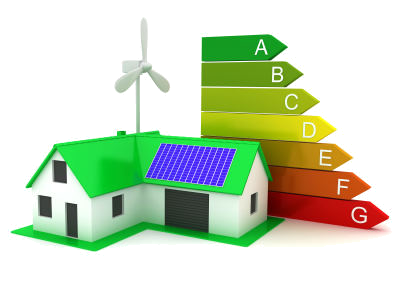
Transforming Homes: The Era of Renewable Energy Technologies
Renewable energy home technologies are reshaping the way we power and sustain our homes. In an era where sustainability is paramount, these innovations are gaining prominence, offering homeowners cleaner, more efficient, and eco-friendly alternatives. Let’s explore the key advancements and benefits of integrating renewable energy technologies into homes.
Solar Power for Sustainable Electricity
One of the most widely adopted renewable energy technologies for homes is solar power. Solar panels, mounted on rooftops or integrated into building materials, harness the energy of the sun to generate electricity. This clean and abundant source of energy reduces reliance on traditional power grids, lowers electricity bills, and contributes to a more sustainable energy future for households.
Wind Turbines: Harnessing Wind Energy Locally
In certain regions, residential wind turbines are becoming a viable option for homeowners seeking to harness wind energy locally. These compact turbines, typically installed on rooftops or in small yards, generate electricity as the wind turns the blades. Integrating wind energy into homes diversifies the renewable energy mix and provides an additional source of clean power.
Geothermal Heating and Cooling Systems
Geothermal heating and cooling systems leverage the constant temperature of the earth beneath the surface to regulate indoor temperatures. By tapping into this stable heat source, these systems efficiently warm homes in winter and cool them in summer. Geothermal systems are energy-efficient, eco-friendly, and provide a consistent and reliable heating and cooling solution.
Hydro Power: Micro Hydropower Systems
In regions with flowing water sources, micro hydropower systems offer an efficient way to generate electricity for homes. Small-scale turbines placed in rivers or streams convert the kinetic energy of flowing water into electrical power. Micro hydropower systems are environmentally friendly and can provide a continuous and reliable source of energy, especially in rural areas.
Energy-Storage Solutions for Round-the-Clock Power
To address the intermittent nature of some renewable sources, energy-storage solutions play a crucial role in maintaining a consistent power supply. Home battery systems, such as lithium-ion batteries, store excess energy generated during peak times, allowing homeowners to use it when renewable sources are not actively producing. This storage technology enhances the reliability and efficiency of renewable energy in homes.
Smart Home Technologies and Energy Efficiency
Integrating renewable energy technologies goes hand in hand with smart home technologies for optimal energy efficiency. Smart thermostats, energy-efficient appliances, and automated systems that optimize energy usage contribute to overall sustainability. These technologies enable homeowners to monitor, control, and reduce their energy consumption, maximizing the benefits of renewable energy.
Green Building Materials and Energy-Efficient Design
The synergy between renewable energy and green building materials is vital for creating energy-efficient homes. Sustainable materials, such as recycled steel, bamboo, and energy-efficient windows, enhance insulation and reduce the need for heating or cooling. Energy-efficient design principles, including proper insulation and orientation, further complement renewable energy technologies for a holistic approach to sustainable living.
Educational Initiatives for Homeowners
As renewable energy technologies become more accessible, educational initiatives play a crucial role in empowering homeowners. Workshops, online resources, and community programs provide information on the benefits of renewable energy, installation procedures, and financial incentives available. Educated homeowners are better equipped to make informed decisions about adopting sustainable technologies.
Financial Incentives and Government Support
Governments and organizations worldwide are offering financial incentives to encourage the adoption of renewable energy home technologies. Tax credits, rebates, and subsidies make the initial investment in solar panels, wind turbines, and other renewable technologies more attractive for homeowners. Government policies supporting clean energy initiatives contribute to the widespread adoption of sustainable home technologies.
Renewable Energy Home Technologies Linking to WaslInfo.org
For comprehensive insights into the latest renewable energy home technologies and how they can transform residential living, visit WaslInfo.org. Explore resources, case studies, and expert perspectives to guide homeowners on the journey to a more sustainable and energy-efficient home.
Embracing a Sustainable Future at Home
In conclusion, the integration of renewable energy technologies into homes is a transformative step toward a more sustainable and eco-friendly future. From solar power to wind turbines and energy-efficient design, these technologies offer homeowners the opportunity to contribute to environmental conservation while enjoying the benefits of cleaner and more cost-effective energy. As the world increasingly recognizes the importance of sustainable living, renewable energy home technologies stand at the forefront of shaping a greener and more resilient residential landscape.
